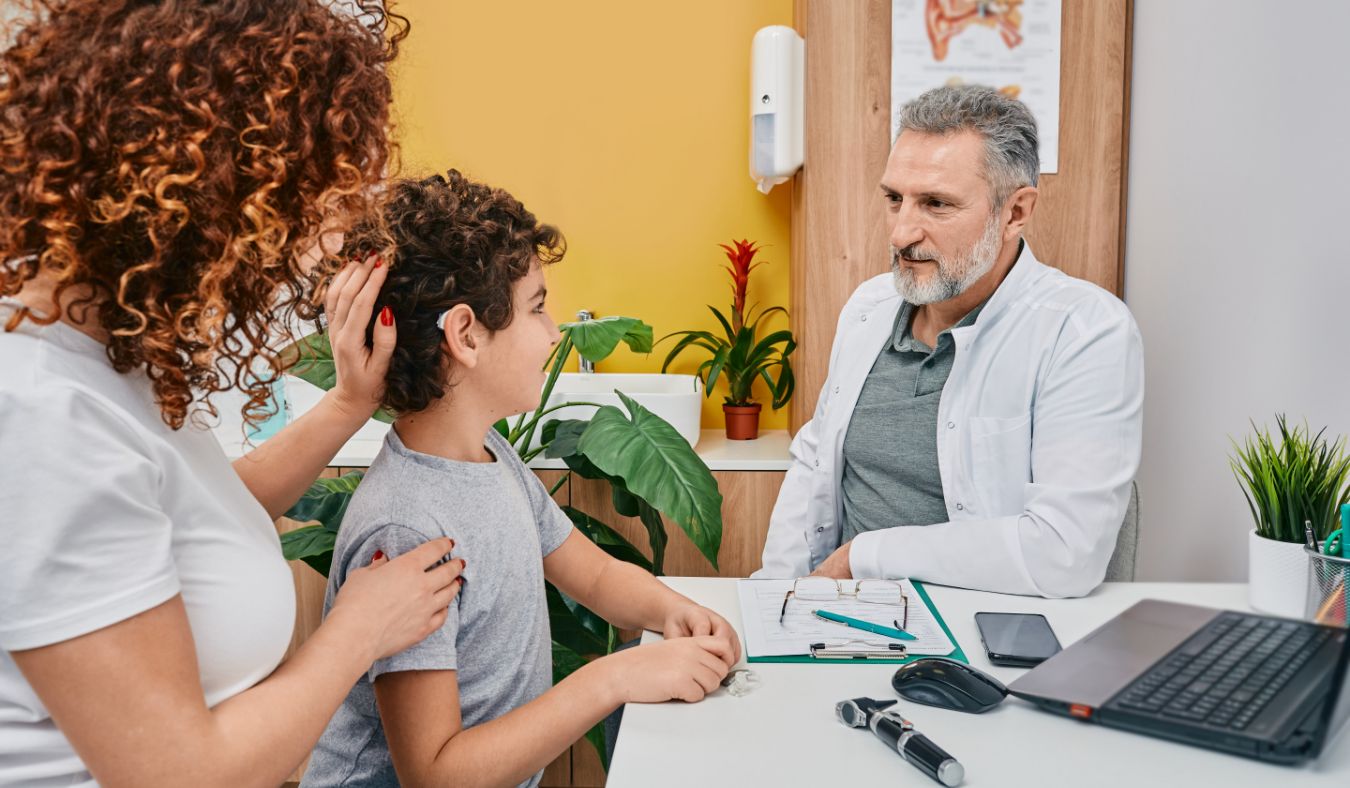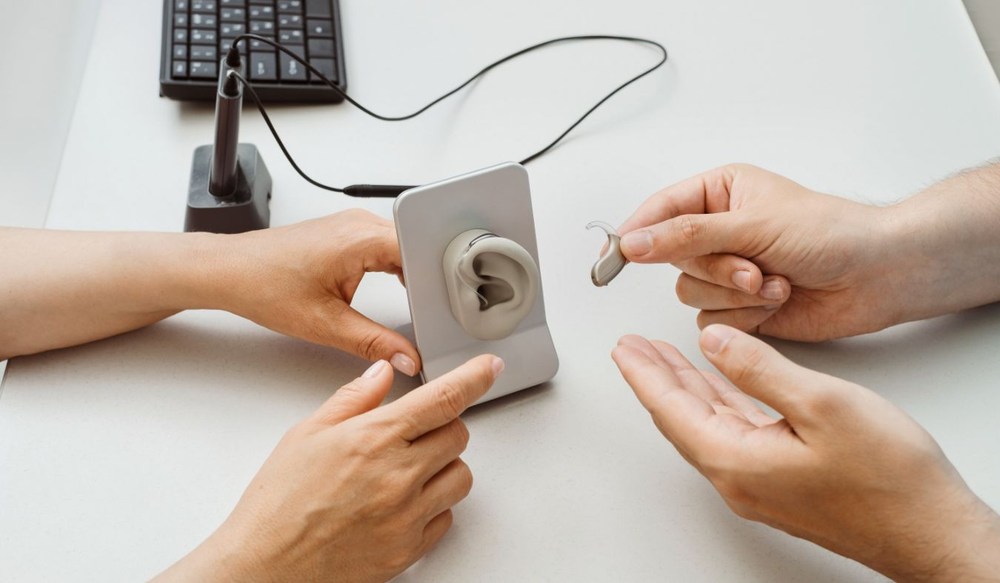From Communities To Classrooms: Hearing Care for All Children
The Audiology Offices today joins the World Health Organization and its

By: admin | September 24, 2025
As people grow older, attention often goes to staying physically active, eating well and keeping the mind engaged. Hearing health, however, is something that many overlook until it begins to interfere with daily life. Early signs may seem minor, like needing to ask for repetition more often, but over time they can influence how someone connects with others and takes part in routine activities. Everyday moments like talking with neighbors or watching a favorite show can become more tiring when hearing is not as clear as it once was. These gradual changes can shape both social interactions and personal comfort in subtle but important ways.
Caring for hearing health is less about treating a problem after it develops and more about protecting quality of life. Clear hearing allows for easier communication in conversations, gatherings and everyday settings. It also supports confidence and independence, from following instructions at an appointment to enjoying time with family. Recognizing the role hearing plays in overall well-being makes it easier to take practical steps to manage changes as they come. With the right approach, it is possible to stay engaged and continue enjoying the routines and connections that make life fulfilling.
Age-related hearing loss refers to the gradual decline in hearing ability that many people experience as they get older. Instead of happening all at once, it often builds slowly, which makes it easy to overlook. Early signs might include trouble picking up softer voices, difficulty hearing in noisy places or feeling like others are mumbling. Because these changes develop over time, people often adapt without realizing how much effort they’re putting into listening. Eventually, the strain of keeping up with conversations can start to affect daily interactions and overall comfort.
This type of hearing loss is often linked to the aging process itself, as the tiny hair cells in the inner ear that help detect sound naturally weaken. Long-term noise exposure, health conditions and family history can also contribute to the changes. Although this form of hearing loss cannot be completely prevented, many effective solutions exist to improve listening and communication. With the right support, people can continue to stay active in conversations, enjoy hobbies and remain involved in social and family life. Recognizing these changes early is key to making adjustments that keep hearing from becoming a bigger barrier over time.
Hearing health plays an important role in how well people age because it supports both communication and connection. Being able to hear clearly makes it easier to stay engaged with family, friends and community activities, which helps maintain a sense of purpose and belonging. When hearing loss is left untreated, conversations often require more effort and situations that once felt enjoyable can start to feel exhausting. Over time, this can discourage participation in social activities, reducing the opportunities that help keep life balanced and fulfilling.
Caring for your hearing also supports brain health and emotional well-being. Taking part in conversations and group activities keeps the mind active and helps preserve memory and focus. People who manage their hearing loss are more likely to remain socially involved, which lowers the risk of isolation and improves overall quality of life. Better hearing also makes it easier to stay physically active, whether through walking groups, exercise classes or outdoor activities, further contributing to healthy aging. Addressing hearing health, you create more opportunities to stay connected, engaged and active as you grow older.
Many people don’t realize that certain health conditions can influence hearing, especially as they age. Problems like diabetes, high blood pressure or heart disease can affect blood flow to the delicate structures in the inner ear, making hearing changes more likely. Even medications used to manage these conditions sometimes have side effects that impact hearing. When these issues go unmonitored, they can quietly add to the difficulty of staying socially active and engaged. This is why paying attention to overall health is also an important step in protecting hearing.
The link between other health conditions and hearing shows how connected the body truly is. Regular checkups, healthy lifestyle choices and communication with your doctors can all help reduce risks that might affect your hearing over time. With managing conditions like diabetes or hypertension, you’re not only supporting your heart and overall health but also helping preserve your ability to hear. Clear hearing makes it easier to stay connected with loved ones, enjoy conversations and remain independent. Addressing both hearing and other health concerns creates a stronger foundation for aging with confidence and ease.
There are some signs that may suggest you are experiencing age-related hearing loss. These include:
Emotional wellbeing and hearing are closely linked, though the connection is not always obvious at first. When hearing is clear, it is easier to share daily experiences, respond naturally in conversations and feel present in the moment. If hearing becomes difficult, misunderstandings may occur more often, which can lead to stress or self-consciousness. Over time, these moments can affect how confident someone feels in social situations. Rather than simply missing sounds, the real challenge often lies in how those missed moments shape mood and self-esteem.
Relationships are also influenced by hearing changes in subtle but meaningful ways. When communication requires extra effort, family interactions may feel less relaxed or spontaneous. A loved one might step back from group conversations or avoid noisy places, which shifts the rhythm of shared routines. These adjustments can leave both the individual and their family members feeling a sense of distance.
Taking steps to support hearing health can ease many of these emotional strains. Tools like hearing aids or communication strategies help restore a sense of ease in everyday interactions. This makes it possible to participate without worry, whether at a quiet dinner table or in a bustling gathering. In turn, emotional wellbeing benefits from the comfort of staying engaged and the reassurance of being understood. Managing hearing health in this way is a practical approach to maintaining balance and peace of mind while aging.
Good hearing plays an important role in handling the small but meaningful tasks that fill each day. It allows you to follow conversations with your family, store clerks or neighbors without relying on someone else to explain. You can hear announcements in public spaces, keep up with phone calls and respond when someone speaks to you directly. Even simple sounds, like a knock at the door or the timer on the oven, help you stay on top of daily routines. These details give you more control over your surroundings and make it easier to manage life on your own.
Clear hearing also adds a sense of security and confidence to your independence. Being able to notice changes in your environment, like approaching vehicles or warning signals, helps you move through the day safely. You don’t have to depend as much on others to interpret what’s happening around you, which keeps you more independent. This independence can encourage you to stay active, whether that means going for a walk, running errands or spending time with friends. With supporting both safety and connection, good hearing makes it possible to maintain a lifestyle where you feel capable and in control.
Routine hearing checkups help you notice changes in your hearing before they start to affect your daily life. These visits allow our team to check how well you hear and suggest ways to keep your hearing at its best. Regular checkups are also important because some health conditions, like diabetes or high blood pressure, can affect your hearing as you age. Keeping track of your hearing health, you can learn about any changes early and understand how other medical issues might play a role.
Protecting your ears from further damage is an important part of keeping your hearing healthy as you age. You can take simple steps each day to help keep your ears safe. Try to avoid loud noises whenever possible by turning down the volume on music or wearing ear protection in noisy places. Taking breaks from loud environments and keeping your ears clean and dry can also help protect your hearing over time.
Making a few small changes in your daily routine can help protect your ears as you age. Keeping the volume down when listening to music or watching TV is one simple way to avoid extra strain on your ears. Wearing ear protection, like earplugs or earmuffs, in loud places like concerts or while using power tools can also help prevent damage. Even short periods of loud noise can have a lasting effect on hearing over time.
Staying healthy overall supports your ears too. Regular exercise, eating a balanced diet and not smoking all play a part in keeping blood flow strong to the tiny parts of the inner ear. Good habits like these make it easier for your ears to work well and stay healthy as you get older.
Knowing when to see an audiologist can make a big difference in your daily life. If you notice that you are missing parts of conversations, turning up the TV louder than before or feeling frustrated in noisy places, these are signs that you might be experiencing hearing loss. Regular visits to an audiologist are also important if you have a family history of hearing loss or certain health conditions like diabetes. Early support can help you manage changes and keep your hearing as strong as possible as you age.
Paying attention to your hearing health supports staying connected with loved ones, remaining independent and keeping your mind active as the years go by. If you have noticed changes in your hearing or want to learn more about protecting it, At The Audiology Offices in Virginia, we are here to assist. Reach out to any of our convenient locations for more information or to schedule a visit:

The Audiology Offices today joins the World Health Organization and its
By: admin | February 25, 2026

Many people notice that their own voice sounds different when they first
By: admin | January 19, 2026

As 5G wireless networks expand and become more widespread, you might
By: admin | November 18, 2025
